Choosing the Right Custom PCB Manufacturer: A Comprehensive Guide
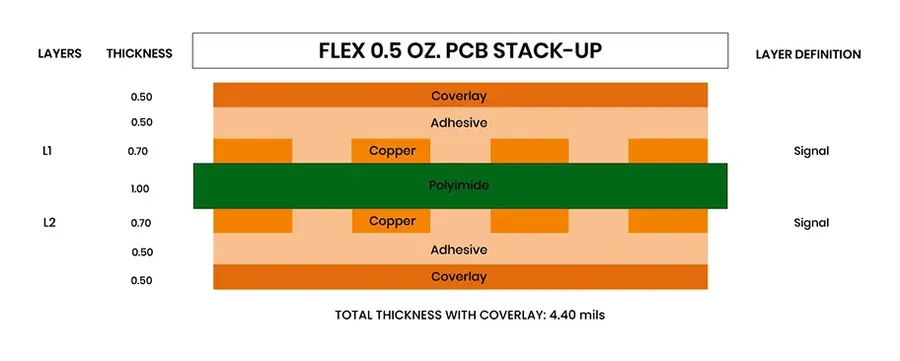
In today's tech-driven world, custom PCBs are the backbone of countless electronic devices. Whether you're developing a groundbreaking gadget or a simple IoT sensor, choosing the right custom PCB manufacturer is crucial. This article dives into the key factors for selection, comparing popular options and outlining best practices to ensure your project's success, all while keeping the needs of both beginners and seasoned professionals in mind and highlighting the importance of finding a reliable partner for custom PCB manufacturing. Let’s explore what makes a manufacturer stand out and how to make an informed decision.
Understanding Your PCB Needs

Before engaging a custom PCB manufacturer, a precise understanding of your project's specific needs is paramount. This foundational step ensures that the selected manufacturer possesses the requisite capabilities and resources to deliver a product that meets all performance, cost, and timeline parameters. Thoroughly defining these needs will streamline the fabrication process, minimize potential errors, and ultimately lead to a successful outcome.
- PCB Complexity
Determine whether your project requires a simple single-layer board, a more complex multi-layer design, or a specialized build such as flex or rigid-flex PCBs. Each of these designs varies significantly in terms of material costs, manufacturing time, and the level of technical expertise required. - Production Volume
Specify the production quantities. Needs can vary from a few prototypes for initial design testing to small batches for pilot runs, or to high-volume manufacturing for mass-market products. Each of these levels significantly affects per-unit cost and production scheduling. - Material Requirements
Select the appropriate base materials and surface finish according to your application's requirements, including thermal performance, signal integrity, mechanical stress resistance, and cost considerations. Materials include FR-4, Aluminum, Rogers, and more. Finishes may include HASL, ENIG, and immersion silver. - Turnaround Time
Establish your required turnaround time, taking into account your project's timeline. Some manufacturers specialize in expedited services for prototyping while others focus on high-volume, cost-effective production with longer lead times. - Special Requirements
Outline any special requirements needed for manufacturing such as impedance control, blind and buried vias, controlled drilling and high-density interconnects. These unique requirements may affect your choice of custom PCB manufacturers.
Factors to Consider When Choosing a Custom PCB Manufacturer
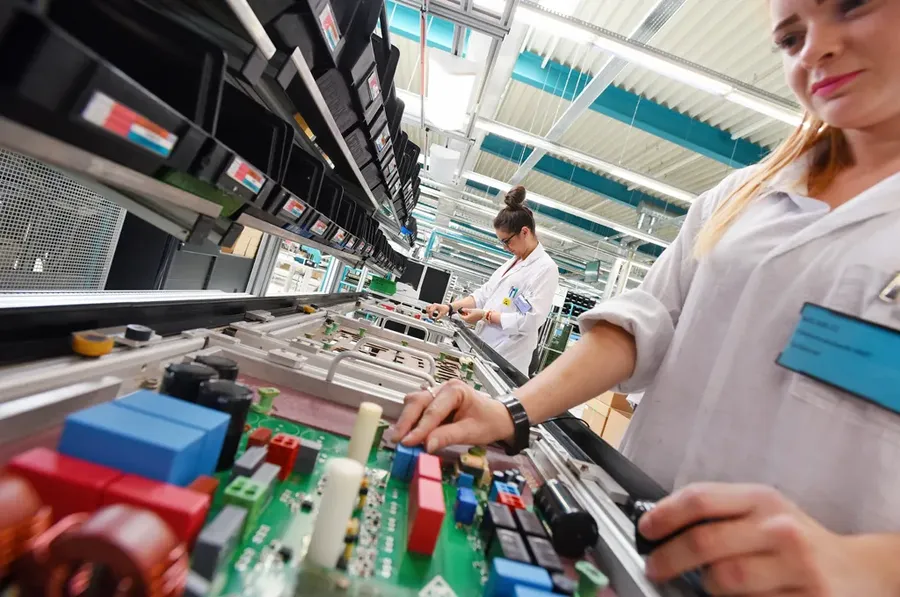
Selecting the right custom PCB manufacturer is crucial for project success. Beyond just finding a vendor, it's about establishing a reliable partnership that aligns with your project's specific requirements. This involves a comprehensive evaluation of several key factors, ensuring that the manufacturer can consistently deliver quality PCBs that meet your needs, budget and timeline.
| Factor | Description | Impact on Project |
|---|---|---|
| Cost | Pricing structure, including tooling, per-board costs, and volume discounts. | Affects the project's budget and overall viability. Cheaper options might compromise quality; higher-priced options may be unnecessary for simple projects. |
| Lead Time | The time required for PCB manufacturing, from order placement to delivery. | Critical for project timelines and meeting deadlines. Shorter lead times are necessary for fast-paced projects, while longer ones might be acceptable for less urgent ones. |
| Quality | Adherence to industry standards, material quality, and manufacturing precision. | Directly impacts the functionality and reliability of your product. Poor quality PCBs can lead to malfunctions and project failures. |
| Manufacturing Capabilities | The range of PCB types, sizes, layer counts, and technologies the manufacturer can produce. | Ensures the manufacturer can handle complex projects. A manufacturer with limited capabilities might not be able to produce the required PCBs. |
| Certifications | Proof of compliance with industry standards and regulations (e.g., ISO 9001, UL). | Demonstrates a commitment to quality and reliability, important for industries with stringent compliance requirements. |
| Customer Support | The quality of communication, responsiveness to inquiries, and technical assistance provided. | Influences overall experience and the ability to resolve issues effectively. Good customer support can prevent costly delays and misunderstandings. |
| Minimum Order Quantity (MOQ) | The minimum number of PCBs required to place an order. | Can affect the project cost, especially if the required quantities are small. May not be feasible for initial prototyping or low-volume production runs. |
Comparing Popular Custom PCB Manufacturers
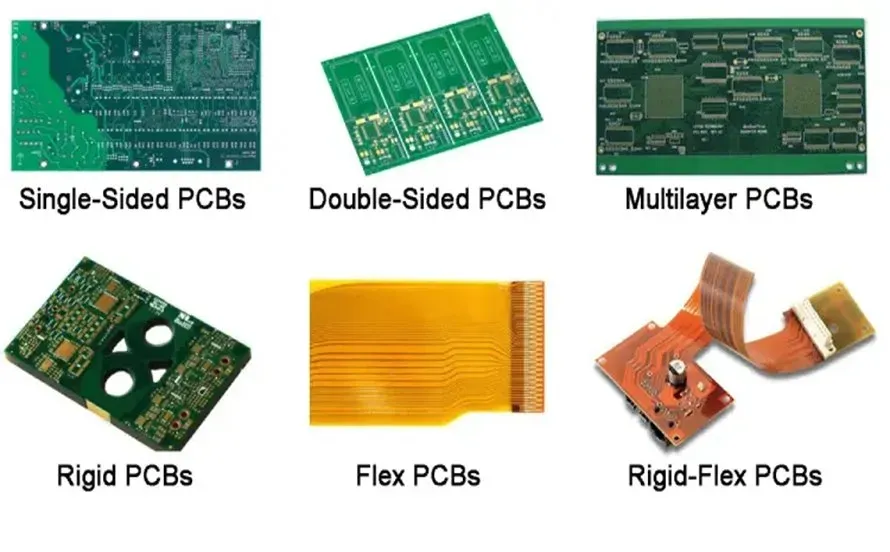
Selecting the right custom PCB manufacturer is crucial for the success of any electronics project. This section provides a detailed comparison of several leading manufacturers, including JLCPCB, PCBWay, and OSH Park, examining their strengths, weaknesses, and pricing models to guide your decision-making process. This analysis will consider factors such as cost, features, and service level to assist in making an informed choice.
| Feature | JLCPCB | PCBWay | OSH Park |
|---|---|---|---|
| Cost | Very competitive, especially for prototypes and small batches | Competitive, with tiered pricing for various quantities | Higher cost, particularly for larger boards or more complex designs |
| Lead Time | Generally fast, with options for expedited service | Variable lead times depending on complexity and quantity, offers expedited options | Slower lead times, as it uses a batching system |
| Quality | Good quality for standard PCB manufacturing | Offers a wide range of quality options, from standard to high-end | High quality focused on low volume prototype boards |
| Manufacturing Capabilities | Extensive capabilities including multi-layer PCBs, SMT assembly | Wide range of capabilities, including advanced PCB technologies | Primarily focuses on basic 2 and 4 layer boards |
| Customer Support | Responsive customer service available via email, and online platform | Offers multiple channels for support, including online chat and dedicated support personnel | Community forum focused support |
| Special Features | Offers a variety of special finishes and features at affordable prices | Features include advanced material options and tighter manufacturing tolerances | Focuses on high-quality prototype boards, ideal for hobbyists and educational projects |
Prototyping vs. Mass Production with a Custom PCB Manufacturer
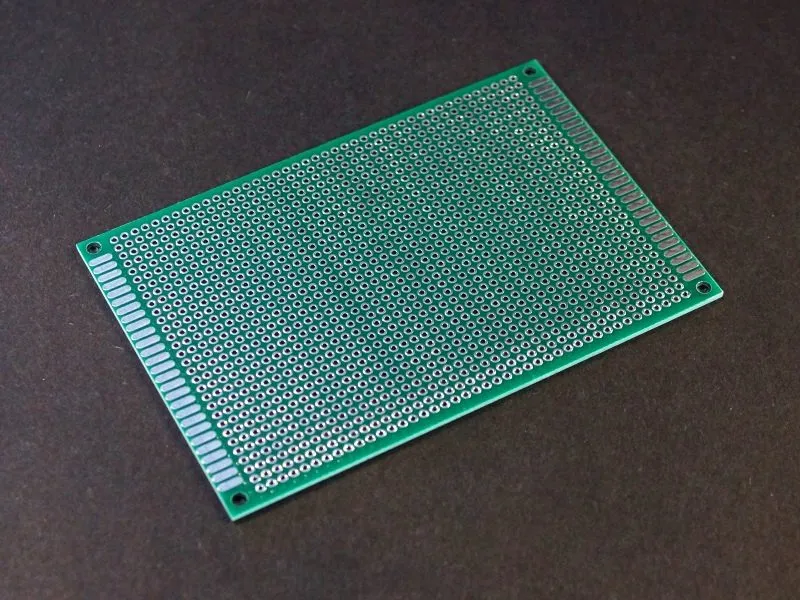
When engaging a custom PCB manufacturer, understanding the distinct requirements of prototyping and mass production is crucial. Prototyping focuses on validating a design’s functionality and manufacturability through small-batch production, while mass production aims for high-volume output at optimized costs. Selecting a manufacturer with capabilities tailored to your specific stage is key to project success, impacting cost, processes, and materials.
| Feature | Prototyping | Mass Production |
|---|---|---|
| Quantity | Low (typically 1-100 boards) | High (hundreds to thousands or more) |
| Cost per Board | Higher due to setup and low volume | Lower due to economies of scale |
| Turnaround Time | Faster turnaround times, often prioritized | Longer lead times due to volume and scheduling |
| Process Flexibility | More flexible for design iterations and changes | Less flexibility, standardized processes |
| Material Options | Wider variety of materials are available for testing | Material choices often limited to cost-effective options |
| Design Refinement | Focus on design validation and iterative improvements | Focus on consistent and reliable output |
| Quality Requirements | Emphasis on basic functionality and design validation | Emphasis on consistent quality and adherence to specifications |
It is important to note that some custom PCB manufacturers specialize in either prototype or mass production runs, while others cater to both. Choosing a suitable manufacturer requires an evaluation of your current and future manufacturing volume needs, as well as their capabilities to support them.
PCB Assembly Services
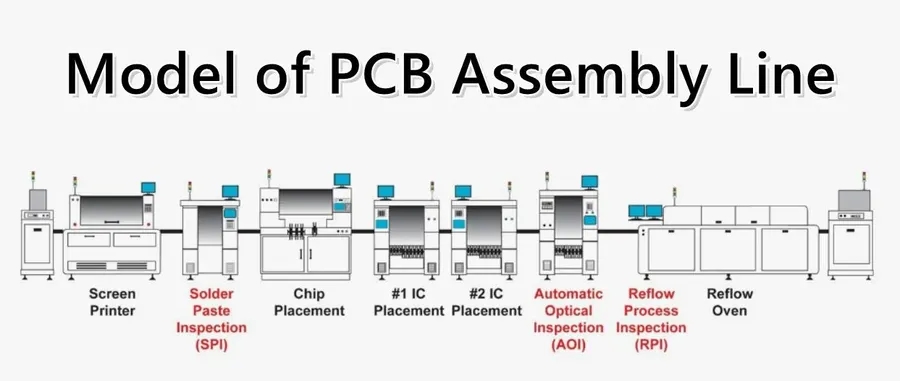
Many custom PCB manufacturers offer comprehensive assembly services in addition to fabrication, streamlining the process from bare board to a fully functional electronic component. These services typically include component procurement, placement, soldering, and testing, providing a convenient 'one-stop shop' solution for your project.
- Component Procurement
Manufacturers can source all necessary electronic components, often leveraging their established supply chains to secure better pricing and availability. This reduces the burden of managing multiple vendors and the risk of counterfeit parts. - Automated Component Placement
Pick-and-place machines accurately position surface mount and through-hole components onto the PCB, ensuring consistent and precise assembly, far exceeding manual capabilities. - Soldering Technologies
Various soldering methods, such as reflow soldering for surface mount technology (SMT) and wave soldering for through-hole components, are utilized depending on the design requirements, ensuring optimal connections. - Inspection and Testing
Post-assembly, boards are inspected for soldering defects (using methods like Automated Optical Inspection - AOI) and undergo functional testing to verify that the PCB is working correctly.
| Service | Description | Benefits |
|---|---|---|
| Full Turnkey | Manufacturer handles all aspects, from PCB fabrication to assembly and testing. | Simplified supply chain, faster turnaround, reduced complexity. |
| Partial Turnkey | Customer supplies some components, manufacturer completes the rest of the assembly. | Cost-effective for specific components, good for established supply chains. |
| Consignment Assembly | Customer provides all parts, manufacturer only performs assembly. | Suitable for customers with strong supply chain control and unique components. |
Design for Manufacturing (DFM) Best Practices
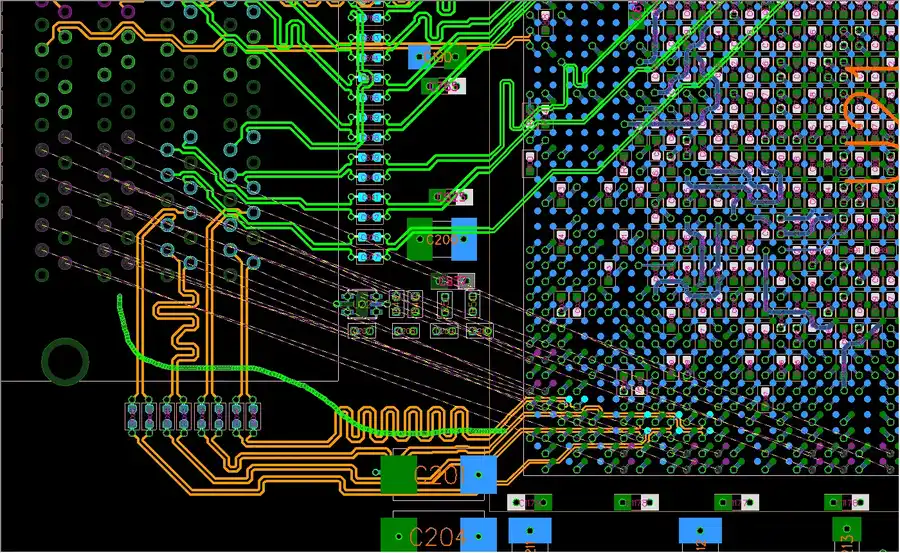
Design for Manufacturing (DFM) is a crucial methodology that optimizes PCB designs for efficient, cost-effective fabrication and assembly. Implementing DFM principles early in the design process minimizes errors, reduces delays, and ensures compatibility with your chosen custom PCB manufacturer's capabilities. By proactively addressing manufacturing constraints, you can avoid costly revisions and improve the overall quality of your final product.
- Minimum Trace Width and Spacing:
Adhering to the manufacturer's specifications for minimum trace width and spacing is essential to prevent shorts, opens and signal integrity issues during the manufacturing process. These parameters are dictated by the manufacturer's technology and capabilities. - Via Size and Placement:
Appropriate via sizes, drill-to-pad ratios, and spacing are vital for reliable connections between layers, particularly in multilayer PCBs. Poor via design can lead to manufacturing defects and performance issues. - Component Placement:
Consider the physical limitations of assembly equipment when placing components. Ensure adequate spacing for pick-and-place machines and soldering operations to facilitate automated assembly and minimize manual rework. - Pad Design:
Pad dimensions, shape, and orientation must match the specifications of the components and the soldering process. Inconsistent pad design can lead to poor solder joints. - Layer Stack-up:
Carefully plan the layer stack-up of your PCB, taking into account signal integrity, power distribution, and impedance control requirements. A well-defined stack-up is vital for multi-layer PCBs. - Solder Mask and Silk Screen:
Proper solder mask design ensures that solder only adheres to the intended pads, preventing shorts. The silk screen should be clear and readable to enable easy component identification and facilitate assembly processes. - Panelization:
When producing multiple boards, panelization allows for efficient manufacturing and handling. It is essential to design the panel arrangement to suit the manufacturer's capabilities, and ensure that each individual board can be separated easily.
By integrating these DFM practices from the initial design phase, you can dramatically reduce the likelihood of encountering manufacturing issues, leading to faster turnaround times, minimized costs, and improved quality of your PCBs. Close communication with your selected custom PCB manufacturer is highly recommended to tailor your designs to their specific capabilities.
Frequently Asked Questions About Custom PCB Manufacturing
This section addresses common questions regarding custom PCB manufacturing, providing clarity and insights for those seeking reliable and efficient solutions. We aim to resolve uncertainties and offer expert perspectives on crucial aspects of the PCB manufacturing process.
- Who is the best custom PCB manufacturer?
The 'best' PCB manufacturer depends heavily on your specific needs. Factors such as the complexity of your design, the volume of PCBs required, your budget, and desired lead time all play a crucial role in determining the ideal manufacturer. For example, JLCPCB and PCBWay are popular choices for prototypes and small batches due to their cost-effectiveness and relatively fast turnaround times. For more complex or high-volume production, you might consider manufacturers with specialized capabilities and certifications. There is no one-size-fits-all 'best' manufacturer, therefore a thorough needs assessment and research is crucial. - Can I get a custom PCB made?
Absolutely. Custom PCB fabrication is a standard service offered by numerous manufacturers worldwide. These services range from single-layer boards to complex multilayer designs. The customization options are broad, encompassing the materials used, the number of layers, the surface finish, and other crucial aspects that are tailored to your design requirements. The process typically begins with uploading your design files (Gerber files, typically) to the manufacturer's platform, from which they will proceed with the fabrication process. - Are PCBs expensive to manufacture?
The cost of PCB manufacturing varies significantly based on multiple factors including board complexity, order volume, material selection, and lead time. Simple, single-layer PCBs produced in large quantities are significantly less expensive per unit than complex, multilayer PCBs produced in small batches. Expedited lead times often result in higher costs. Cost-effective fabrication can be achieved through careful design considerations (following Design for Manufacturing principles) and by selecting a manufacturer that aligns with your volume and complexity needs. - Who is the largest PCB manufacturer in the USA?
Determining the 'largest' PCB manufacturer is challenging as market leadership can fluctuate and specific data is often proprietary. However, companies like TTM Technologies and Sanmina Corporation are generally recognized as key players in the US PCB manufacturing sector, known for their extensive capabilities and large production volumes. These large manufacturers often support high-volume production and offer advanced manufacturing technologies. It’s advisable to cross reference with industry reports or databases for current information. - What is the typical lead time for custom PCB manufacturing?
Lead times for custom PCB manufacturing can range from a few days for prototypes to several weeks for mass production, depending on the manufacturer, complexity of the PCB, and order volume. Many manufacturers offer expedited services for a higher fee, cutting production times down significantly. It's vital to confirm lead times when requesting quotations or placing orders to ensure alignment with project timelines. - What file formats are required for custom PCB manufacturing?
The standard file format for PCB manufacturing is the Gerber format, which consists of multiple files specifying the copper layers, solder mask, silkscreen, and drill data. In addition, manufacturers may require a drill file (Excellon format), a bill of materials (BOM), and a centroid or pick-and-place file for assembly services. Always confirm specific requirements with your chosen manufacturer to ensure smooth processing. - How do I choose a reliable PCB manufacturer?
Choosing a reliable PCB manufacturer requires a multi-faceted approach. First, assess their manufacturing capabilities to determine if they match the complexity of your design. Second, evaluate their quality standards and certifications (such as ISO). Third, check customer reviews and their reputation for communication and customer support. Finally, request quotations from several manufacturers to compare pricing, lead times, and overall service offerings. These steps will enhance the chance of selecting a reliable partner.
The Impact of Location: USA vs. International Manufacturers
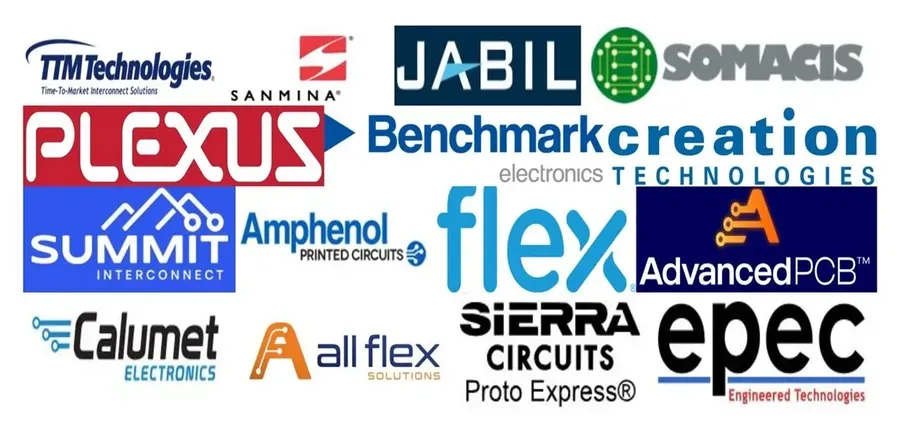
The choice between a domestic (USA-based) and an international custom PCB manufacturer significantly impacts project timelines, costs, and communication. Understanding these differences is crucial for making an informed decision tailored to specific project needs.
| Factor | USA Manufacturers | International Manufacturers |
|---|---|---|
| Cost | Generally higher due to labor and material costs | Typically lower due to lower labor and material costs |
| Lead Time | Potentially faster shipping and turnaround times due to proximity | Longer shipping times can impact project timelines |
| Communication | Often easier due to similar time zones and language | Potential challenges due to time zone differences and language barriers |
| Quality | Can offer higher quality standards and material sourcing | Variable quality and need for stricter due diligence on manufacturing process |
| Intellectual Property | Stronger IP protection laws and enforcement | IP protection can be weaker and require greater vigilance |
| Customs and Tariffs | No import duties or customs hassles | Potential for customs delays and import tariffs |
| Support | May have more readily available customer support. | May offer less immediate support |
Tips for a Smooth PCB Manufacturing Process
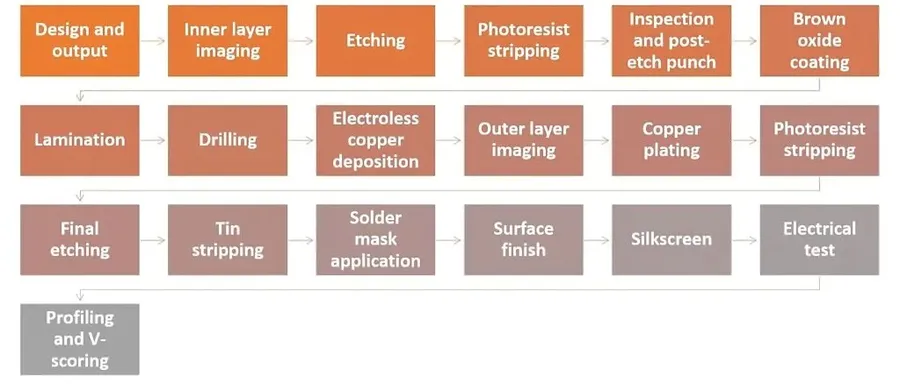
Effective communication, meticulous file preparation, and rigorous quality checks are paramount for a seamless PCB manufacturing experience. These steps, when executed diligently, can prevent costly errors, reduce delays, and ensure the final product meets your specifications.
- Clear and Consistent Communication
Establish clear lines of communication with your manufacturer from the outset. Use written communication for detailed instructions and always confirm critical specifications to avoid any misunderstandings. Proactively clarify any uncertainties regarding your design or the manufacturer’s capabilities. - Thorough File Preparation
Ensure your design files are complete, accurate, and follow the manufacturer’s specific requirements. This includes Gerber files, drill files, and any necessary documentation for assembly. Double-check your files against your design to minimize any chance of discrepancies that could cause delays or errors in manufacturing. - Request a Pre-Production Review
Before committing to a full production run, ask for a pre-production review or a sample board. This allows you to verify the manufacturer's output quality and ensure your design is correctly translated into the physical board. This step can identify potential problems early and is often more cost-effective than correcting issues on a larger scale. - Implement Robust Quality Checks
Establish clear quality standards, and conduct thorough checks upon receiving your PCBs. This should include visual inspections, as well as functional testing. Document any issues and communicate these promptly with the manufacturer for rectification. This step ensures the delivered PCBs align with the established quality standards. - Provide Detailed Assembly Instructions
If your project requires assembly services, be sure to include detailed and precise instructions, such as BOM files, component placement drawings, and any special handling specifications. Proper assembly instructions help avoid errors and ensures a smooth assembly process, in turn delivering a higher quality product. - Maintain Detailed Records
Keep meticulous records of all interactions with the manufacturer, including emails, communications, and file versions. These records can be crucial if disputes arise, or if similar products are to be produced in the future. These can also be useful for continuous improvement processes.
Choosing the right custom PCB manufacturer is a critical step towards project success. By understanding your project needs, comparing manufacturer capabilities, and implementing best practices, you can ensure high-quality, cost-effective, and timely PCB production. Whether you're a hobbyist or a professional, remember that a reliable custom PCB manufacturer is a partner in your journey from concept to reality. Partnering with a reputable custom PCB manufacturer will save you both time and resources, leading to successful product launches.
 AnyPCBA
AnyPCBA